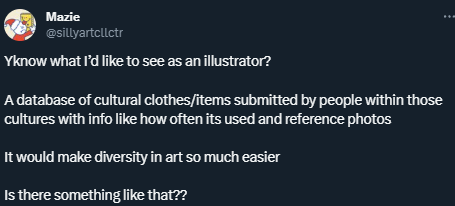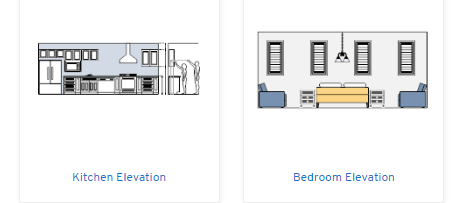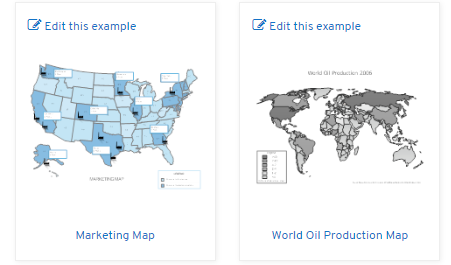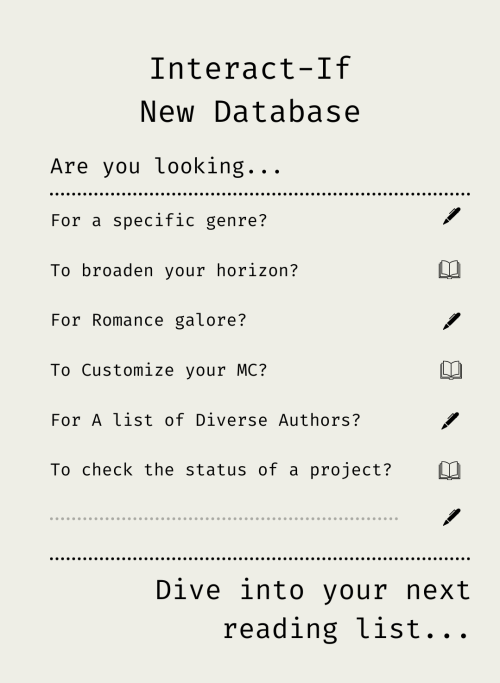Key Takeaways - Neil Gaiman's MasterClass On Storytelling
Key Takeaways - Neil Gaiman's MasterClass on Storytelling
I'm currently listening to Neil Gaiman's MasterClass on storytelling, and I thought I'd share some of my primary takeaways from the first few episodes.
There are a million bad lines inside of your pencil. Your job as a writer is to get them all out so that you can get to the good ones.
Your influences/inspirations as a storyteller are not just other fiction writers. Stop and think how musicians and other artists influence the stories you want to tell and how to tell them.
When you sit down to begin a new story or project, first take some time to write down everything you know about it so far. Write down all your ideas, sketch and doodle and annotate if you need to, and then look for connections. This is where a story emerges from a jumble of ideas.
What is it about? Every good story is saying something, even if it's not a deep social commentary. This is different from your concept and it will guide you as you go. Stories are about telling the truth through fiction (lies), so think about what truth you're trying to tell.
What do your characters want? This will help you establish conflict. Pick two of your characters, answer this question, and make their desires mutually exclusive. Characters will always get what they need, for good or ill, but not all of them can get what they want.
When you're stuck in your plot, you can also ask yourself what your characters want. They may just save you!
What happens next? This is the most important question, not just because you have to continually answer it to build your plot but because it's the question that makes your story matter. At the end of every chapter or at every shift in character perspective, etc., your readers should be asking this question. It's the only way to keep them turning pages. This question has to matter to you as well, because if the author doesn't care what happens next, neither will anyone else.
These were some of my favorite points or things that I felt were most foundational to young writers. I'm only partway through but I do recommend his MasterClass! It's very informational and uplifting, and he's easy to listen to. Check your local library to see if you can access it for free!
More Posts from Irolith and Others
Make your margins wider in your writing
Writing what feels like a dozen pages only to figure out after that you haven't even gotten through half a page is a universal experience across all writers.
What I'm about to tell you is one way I've found helps getting through that psychological toll.
One day I was writing my novel (a-luchador-detective-versus-a-lady-vampire sort of affair) when I got a certain idea. I picked up my copy of Authority by Jeff Vandermeer that I had on the desk and decided to make the line length in my work the same as that paperback edition. Margins were widened and line spacing was adjusted, leaving me with a sort of narrow manuscript.

You've no idea how much my productivity went up.
Logically, finishing a line became much faster, which lead to quicker finished pages, which produced a longer-looking manuscript. Of course, this doesn't mean that my writing was immediately faster per se,
but the feeling of being faster placebo-ed me in a way that increased my output.
Now I'm hitting my daily word-count much more consistently and I believe this was partly responsible.
Humans like numbers going up, if we wouldn't both videogames and billionares wouldn't exist. Seeing my page count increase is a reward to my brain which gives me a boost to get to the next page. By decreasing the length between rewards I'm put in a more constant progression loop, no longer feeling the slog of going up a hill and being met with a thousand more.
And at the end, if I want to check my actual progress, the real gauge will forever be the total word count, which we shouldn't obsess over, anyways.
The journey to create a novel or other piece of long-form media will always be more of a marathon than a race, and should be undertaken with the mindset of a marathon. All progress is incremental, and you should not be emotionally punishing yourself for not finishing a quarter of your book in the last week, as if that were somehow possible.
The length of a novel is such that any time-saving and efficiency-increasing life hacks we apply would only be reducing our-time-finish by weeks at the most, so why the rush?
I believe the key to writing faster is to write constantly first.
Can't be fast without stamina. So go ahead; write and make writing easier on you.
Skip Google for Research
As Google has worked to overtake the internet, its search algorithm has not just gotten worse. It has been designed to prioritize advertisers and popular pages often times excluding pages and content that better matches your search terms
As a writer in need of information for my stories, I find this unacceptable. As a proponent of availability of information so the populace can actually educate itself, it is unforgivable.
Below is a concise list of useful research sites compiled by Edward Clark over on Facebook. I was familiar with some, but not all of these.
⁂
Google is so powerful that it “hides” other search systems from us. We just don’t know the existence of most of them. Meanwhile, there are still a huge number of excellent searchers in the world who specialize in books, science, other smart information. Keep a list of sites you never heard of.
www.refseek.com - Academic Resource Search. More than a billion sources: encyclopedia, monographies, magazines.
www.worldcat.org - a search for the contents of 20 thousand worldwide libraries. Find out where lies the nearest rare book you need.
https://link.springer.com - access to more than 10 million scientific documents: books, articles, research protocols.
www.bioline.org.br is a library of scientific bioscience journals published in developing countries.
http://repec.org - volunteers from 102 countries have collected almost 4 million publications on economics and related science.
www.science.gov is an American state search engine on 2200+ scientific sites. More than 200 million articles are indexed.
www.pdfdrive.com is the largest website for free download of books in PDF format. Claiming over 225 million names.
www.base-search.net is one of the most powerful researches on academic studies texts. More than 100 million scientific documents, 70% of them are free
How I learned to write smarter, not harder
(aka, how to write when you're hella ADHD lol)
A reader commented on my current long fic asking how I write so well. I replied with an essay of my honestly pretty non-standard writing advice (that they probably didn't actually want lol) Now I'm gonna share it with you guys and hopefully there's a few of you out there who will benefit from my past mistakes and find some useful advice in here. XD Since I started doing this stuff, which are all pretty easy changes to absorb into your process if you want to try them, I now almost never get writer's block.
The text of the original reply is indented, and I've added some additional commentary to expand upon and clarify some of the concepts.
As for writing well, I usually attribute it to the fact that I spent roughly four years in my late teens/early 20s writing text roleplay with a friend for hours every single day. Aside from the constant practice that provided, having a live audience immediately reacting to everything I wrote made me think a lot about how to make as many sentences as possible have maximum impact so that I could get that kind of fun reaction. (Which is another reason why comments like yours are so valuable to fanfic writers! <3) The other factors that have improved my writing are thus: 1. Writing nonlinearly. I used to write a whole story in order, from the first sentence onward. If there was a part I was excited to write, I slogged through everything to get there, thinking that it would be my reward once I finished everything that led up to that. It never worked. XD It was miserable. By the time I got to the part I wanted to write, I had beaten the scene to death in my head imagining all the ways I could write it, and it a) no longer interested me and b) could not live up to my expectations because I couldn't remember all my ideas I'd had for writing it. The scene came out mediocre and so did everything leading up to it. Since then, I learned through working on VN writing (I co-own a game studio and we have some visual novels that I write for) that I don't have to write linearly. If I'm inspired to write a scene, I just write it immediately. It usually comes out pretty good even in a first draft! But then I also have it for if I get more ideas for that scene later, and I can just edit them in. The scenes come out MUCH stronger because of this. And you know what else I discovered? Those scenes I slogged through before weren't scenes I had no inspiration for, I just didn't have any inspiration for them in that moment! I can't tell you how many times there was a scene I had no interest in writing, and then a week later I'd get struck by the perfect inspiration for it! Those are scenes I would have done a very mediocre job on, and now they can be some of the most powerful scenes because I gave them time to marinate. Inspiration isn't always linear, so writing doesn't have to be either!
Some people are the type that joyfully write linearly. I have a friend like this--she picks up the characters and just continues playing out the next scene. Her story progresses through the entire day-by-day lives of the characters; it never timeskips more than a few hours. She started writing and posting just eight months ago, she's about an eighth of the way through her planned fic timeline, and the content she has so far posted to AO3 for it is already 450,000 words long. But most of us are normal humans. We're not, for the most part, wired to create linearly. We consume linearly, we experience linearly, so we assume we must also create linearly. But actually, a lot of us really suffer from trying to force ourselves to create this way, and we might not even realize it. If you're the kind of person who thinks you need to carrot-on-a-stick yourself into writing by saving the fun part for when you finally write everything that happens before it: Stop. You're probably not a linear writer. You're making yourself suffer for no reason and your writing is probably suffering for it. At least give nonlinear writing a try before you assume you can't write if you're not baiting or forcing yourself into it!! Remember: Writing is fun. You do this because it's fun, because it's your hobby. If you're miserable 80% of the time you're doing it, you're probably doing it wrong!
2. Rereading my own work. I used to hate reading my own work. I wouldn't even edit it usually. I would write it and slap it online and try not to look at it again. XD Writing nonlinearly forced me to start rereading because I needed to make sure scenes connected together naturally and it also made it easier to get into the headspace of the story to keep writing and fill in the blanks and get new inspiration. Doing this built the editing process into my writing process--I would read a scene to get back in the headspace, dislike what I had written, and just clean it up on the fly. I still never ever sit down to 'edit' my work. I just reread it to prep for writing and it ends up editing itself. Many many scenes in this fic I have read probably a dozen times or more! (And now, I can actually reread my own work for enjoyment!) Another thing I found from doing this that it became easy to see patterns and themes in my work and strengthen them. Foreshadowing became easy. Setting up for jokes or plot points became easy. I didn't have to plan out my story in advance or write an outline, because the scenes themselves because a sort of living outline on their own. (Yes, despite all the foreshadowing and recurring thematic elements and secret hidden meanings sprinkled throughout this story, it actually never had an outline or a plan for any of that. It's all a natural byproduct of writing nonlinearly and rereading.)
Unpopular writing opinion time: You don't need to make a detailed outline.
Some people thrive on having an outline and planning out every detail before they sit down to write. But I know for a lot of us, we don't know how to write an outline or how to use it once we've written it. The idea of making one is daunting, and the advice that it's the only way to write or beat writer's block is demoralizing. So let me explain how I approach "outlining" which isn't really outlining at all.
I write in a Notion table, where every scene is a separate table entry and the scene is written in the page inside that entry. I do this because it makes writing nonlinearly VASTLY more intuitive and straightforward than writing in a single document. (If you're familiar with Notion, this probably makes perfect sense to you. If you're not, imagine something a little like a more contained Google Sheets, but every row has a title cell that opens into a unique Google Doc when you click on it. And it's not as slow and clunky as the Google suite lol) When I sit down to begin a new fic idea, I make a quick entry in the table for every scene I already know I'll want or need, with the entries titled with a couple words or a sentence that describes what will be in that scene so I'll remember it later. Basically, it's the most absolute bare-bones skeleton of what I vaguely know will probably happen in the story.
Then I start writing, wherever I want in the list. As I write, ideas for new scenes and new connections and themes will emerge over time, and I'll just slot them in between the original entries wherever they naturally fit, rearranging as necessary, so that I won't forget about them later when I'm ready to write them. As an example, my current long fic started with a list of roughly 35 scenes that I knew I wanted or needed, for a fic that will probably be around 100k words (which I didn't know at the time haha). As of this writing, it has expanded to 129 scenes. And since I write them directly in the page entries for the table, the fic is actually its own outline, without any additional effort on my part. As I said in the comment reply--a living outline!
This also made it easier to let go of the notion that I had to write something exactly right the first time. (People always say you should do this, but how many of us do? It's harder than it sounds! I didn't want to commit to editing later! I didn't want to reread my work! XD) I know I'm going to edit it naturally anyway, so I can feel okay giving myself permission to just write it approximately right and I can fix it later. And what I found from that was that sometimes what I believed was kind of meh when I wrote it was actually totally fine when I read it later! Sometimes the internal critic is actually wrong. 3. Marinating in the headspace of the story. For the first two months I worked on [fic], I did not consume any media other than [fandom the fic is in]. I didn't watch, read, or play anything else. Not even mobile games. (And there wasn't really much fan content for [fandom] to consume either. Still isn't, really. XD) This basically forced me to treat writing my story as my only source of entertainment, and kept me from getting distracted or inspired to write other ideas and abandon this one.
As an aside, I don't think this is a necessary step for writing, but if you really want to be productive in a short burst, I do highly recommend going on a media consumption hiatus. Not forever, obviously! Consuming media is a valuable tool for new inspiration, and reading other's work (both good and bad, as long as you think critically to identify the differences!) is an invaluable resource for improving your writing.
When I write, I usually lay down, close my eyes, and play the scene I'm interested in writing in my head. I even take a ten-minute nap now and then during this process. (I find being in a state of partial drowsiness, but not outright sleepiness, makes writing easier and better. Sleep helps the brain process and make connections!) Then I roll over to the laptop next to me and type up whatever I felt like worked for the scene. This may mean I write half a sentence at a time between intervals of closed-eye-time XD
People always say if you're stuck, you need to outline.
What they actually mean by that (whether they realize it or not) is that if you're stuck, you need to brainstorm. You need to marinate. You don't need to plan what you're doing, you just need to give yourself time to think about it!
What's another framing for brainstorming for your fic? Fantasizing about it! Planning is work, but fantasizing isn't.
You're already fantasizing about it, right? That's why you're writing it. Just direct that effort toward the scenes you're trying to write next! Close your eyes, lay back, and fantasize what the characters do and how they react.
And then quickly note down your inspirations so you don't forget, haha.
And if a scene is so boring to you that even fantasizing about it sucks--it's probably a bad scene.
If it's boring to write, it's going to be boring to read. Ask yourself why you wanted that scene. Is it even necessary? Can you cut it? Can you replace it with a different scene that serves the same purpose but approaches the problem from a different angle? If you can't remove the troublesome scene, what can you change about it that would make it interesting or exciting for you to write?
And I can't write sitting up to save my damn life. It's like my brain just stops working if I have to sit in a chair and stare at a computer screen. I need to be able to lie down, even if I don't use it! Talking walks and swinging in a hammock are also fantastic places to get scene ideas worked out, because the rhythmic motion also helps our brain process. It's just a little harder to work on a laptop in those scenarios. XD
In conclusion: Writing nonlinearly is an amazing tool for kicking writer's block to the curb. There's almost always some scene you'll want to write. If there isn't, you need to re-read or marinate.
Or you need to use the bathroom, eat something, or sleep. XD Seriously, if you're that stuck, assess your current physical condition. You might just be unable to focus because you're uncomfortable and you haven't realized it yet.
Anyway! I hope that was helpful, or at least interesting! XD Sorry again for the text wall. (I think this is the longest comment reply I've ever written!)
And same to you guys on tumblr--I hope this was helpful or at least interesting. XD Reblogs appreciated if so! (Maybe it'll help someone else!)

tweet
Something like this would be so colossally helpful. I'm sick and tired of trying to research specific clothing from any given culture and being met with either racist stereotypical costumes worn by yt people or ai generated garbage nonsense, and trying to be hyper specific with searches yields fuck all. Like I generally just cannot trust the legitimacy of most search results at this point. It's extremely frustrating. If there are good resources for this then they're buried deep under all the other bullshit, and idk where to start looking.
writers' resources
sick of using "very _____" ? : https://www.losethevery.com/
want to simplify your writing ? : https://hemingwayapp.com/
writing buddies / motivation ? : https://nanowrimo.org
word you're looking for but don't know ? : https://www.onelook.com/thesaurus/
need a fantasy name ? : https://www.fantasynamegenerators.com/
need a fantasy name ? : https://nameberry.com/
want a name with meaning ? : https://www.behindthename.com/
who wants a map maker! : https://inkarnate.com/
story building / dnd ? : https://www.worldanvil.com/
need some minimalistic writing time ? : https://zenpen.io/
running out of ideas ? : https://blog.reedsy.com/creative-writing-prompts/
setting a goal ? how about 3 pages / day ? : https://new.750words.com/
what food did they eat ? : https://www.foodtimeline.org/
questions on diversity within writing ? : https://writingwithcolor.tumblr.com/
now what was that colour called ? : https://ingridsundberg.com/2014/02/04/the-color-thesaurus/
want more? : https://www.tumblr.com/blog/lyralit :]
just found one of my favorite pieces of writing advice when it comes to interactive fiction, i think if you've read literally any of my work, it will be pretty obvious how much i use this in my own writing. i actually couldn't remember where i read this for the first time and on a whim i went through my twitter likes and found it in a thread. i'm going to transcribe it for ease of reading, but this is all coming from Alexander Freed (@/AlexanderMFreed on twitter)
he has a website here with other compiled writing advice about branching narratives and game design, though he never posted this there and hasn't really updated recently (but still check it out. there's some specific entries about writing romance, branching and linear & other game writing advice)
original twitter thread here
It's Tuesday night and I feel like teaching some of what I've learned in 15 years of branching narrative video game writing. Let's go in-depth about one incredibly specific subject: neutral / fallthrough / catchall response options!

Player ownership of the protagonist in choice-based branching narrative games (a la BioWare, Telltale, mobile narrative games, etc) is a vital aspect of the form.
The ability for the audience to shape a Player Character, to develop that character's inner life in their own mind, is unmatched in any other medium.
The Player determines the character's actions and THE MOTIVATIONS for those actions. The character's psychology can literally be as complex as the Player can imagine. However, this works best when there's enough space for the Player to develop those motivations. No game can offer enough options to support every interpretation imaginable; much of the character has to live in the Player's head, without necessarily appearing on the screen.
That's complicated. We're going to unpack it.
Generally, when presenting choices to a Player, we want those choices to be as interesting and compelling as possible.
But compelling, dramatic choices tend to be revealing of character. And no game can support hundreds of options at every choice point for every possible character motivation a Player might imagine.
This sort of narrative CANNOT maintain its integrity if the Player is forced to constantly "rewrite" their characterization of the Player Character on the fly. You want your Player to feel like they have more than enough viable options at any given moment.
At the simplest level of writing, this is where "fallthrough" responses come in.




In the examples above, each moment contains a response which furthers the story but doesn't imply a huge emotional choice for the Player. The Player is asked to choose A or B, agree or disagree, but can sidestep the issue altogether if desired.
These "neutral" responses are vital if both A and B don't appeal to the Player... or if, perhaps, the Player likes A but not the WAY A is being expressed. Milquetoast option C works for anyone; thus, the Player is never forced to break character because of a lack of options.
Questions work well for this sort of neutral option. Tacit agreement and dead silence also serve, in certain sorts of stories--as a Player, I know what's going on in my silent character's head and the game won't contradict it.
The important thing is that I'm never forced to take a path that's outright WRONG for my character. Even if other characters misinterpret the Player Character's motivation, my character's inner life remains internally consistent.
"Neutral" responses aren't the only ways to go, though. Some responses are appropriate for any character because they're tied to the base character concept.
Here, for example (from @/seankmckeever's X-Files), the Player is a marine on a mission. The Player can respond abrasively to her partner's fear or look into the issue (out of compassion or genuine belief), but our fallthrough is actually the TOP response.

There's no version of our marine who would absolutely break character by picking "Stay calm and on mission." It's not blandly neutral; rather, it reinforces aspects of the character we can be sure of and gives the Player an option if nothing else works.
Different sorts of narratives will use different sorts of fallthroughs. A comedy might treat the option to say something funny as a fallthrough, of sorts--it's entertaining and will never violate the characterization the Player has created.
In a quest-driven RPG, a fallthrough response can often boil down to "How do I move to the next step of this quest?"
That said, the strongest moments in a narrative will often have no "fallthrough" response at all. They'll work by creating multiple responses that, by overlapping, cover all reasonable Player Character actions while still leaving room for the Player to ascribe motivation.
smartdraw.com - A cool website I found!
I wanted to do a blueprint of a scene and searched for a free online tool. This website has more than just house plans and mind maps, and I think it could really come in handy if you want to make some settings more approachable.




You can choose to start from scratch or use one of the many templates. The latter is probably easier in the beginning, to try out the different ways to arrange and color the objects. After getting used to the interface (it is similar to PowerPoint) you can use the result as a way to plan your scenes or give your readers a visual aid to follow the plot.
The symbols (or rather objects) for the floor plans, timelines, family trees, crime scenes etc. are sorted in many subcategories, e.g. Floor Plans -> Furniture -> Kitchen. No matter which type of diagram you pick, you can also use the objects from the others, so if you want an endoplasmic reticulum in your bathroom blueprint, go for it.


I think that for whump purposes you should especially check out the Crime Scene category for blood, drugs, weapons and so on.
I do have to say that I experienced some bugs and long loading time, but that could just be my ancient computer going wild. Also, the graphics are certainly not the prettiest. As someone who would have had to draw everything themself instead, it's still a great option.
TLDR: It's like Picrew but for locations.
Writing Tips #2 - Lighting
You ever sit there for half an hour trying to think of another way to say "this surface is bright?" Yeah, me too. Well, no more! Without further adieu, let's talk about lighting. Below is a quick list thrown together to help make describing light, objects affected by light, or the absence of light easier to describe when setting a scene.

Bright
Ablaze, aglow, beaming, blazing, blinding, bright, brilliant, flaming, glaring, glowing, radiant, vivid.
Dark
Abyssal, caliginous, dark, dingy, dusky, gloomy, ill-lit, inky, jet-black, moonless, overcast, pitch black, shadowy, shady, starless, sunless, tenebrous, unlit, unilluminated.
Dim
Bleary, blurred, cloudy, dreary, dusky, faded, faint, foggy, fuzzy, gloomy, gray, lackluster, murky, opaque, overcast, pale, shadowy, shady, tarnished, unclear.
Dull
Ashen, cloudy, colorless, dead, dismal, drab, dreary, dusky, faded, flat, hazy, indistinct, lackluster, low, matte, mousy, muddy, murky, muted, obscure, opaque, plain, subdued, toned-down, unlit.
Shiny
Burnished, crystal, dazzling, flickering, glassy, gleaming, glimmering, glinting, glistening, glittering, glossy, jeweled, polished, satiny, sheeny, shimmering, shining, silvery, sparkling, twinkling.

With these in mind, hopefully, none of you will struggle like I have :P As always, have a wonderful day! I hope this helps <3




Custom Sugarcube 2 template inspired by Choice of Games and dashingdon
With the recent news of dashingdon shutting down I decided to dust off an old twine template. Might make the move to twine easier for some, might not, either way I had fun.
Template on itch.io
Template is compatible with the most recent Twine update (2.10.0)
Features:
Mobile friendly UI
Settings to change theme (white, sepia, dark), font (including a dyslexia friendly font), font size
Autosaving and custom save names
Toggleable notifications
A passage to choose custom pronouns; both by reader input and preset, as well as pronoun widgets for grammatical differences
Special passages labelled and explained
Multiple stat bars
Stylesheet and Javascript labelled to make everything easy to find and change
Custom macros (linked in file)

After months of collecting, compiling and formatting, we are finally unveiling our biggest project to date:
INTRODUCING: The Interact-IF Database
In an effort to help readers find games and WIP projects following a certain tag, genre, theme or level of customization, as well as finding diverse authors of a variety of identities, we have created a database of primarily Tumblr-based IF projects!
This list has been put together with the help of the authors of the featured projects, who have provided us with information about their games. It will be updated regularly by the mods of this Tumblr.
Are you a reader looking for your next read?
Head over on to our list [link].
The projects on this database are in compliance with our FAQ and Guidelines. We reserve the right to not include entries sent by authors if their projects do not follow said guidelines.
Are you an IF author/dev wanting to share your project?
• You can fill in this form [link].
Are you the author of one of the projects and found an error?
• Let us know through this form [link].
Do you have questions about our database?
• Head over to our Database FAQ first to see if we provided an answer for it. You can always send us an ask otherwise.
If you are an author of a playable project (WIP or completed), you should also consider adding it to the IFDB, the Interactive Fiction Database.
-
 auroraescritora liked this · 10 months ago
auroraescritora liked this · 10 months ago -
 twilabellas liked this · 1 year ago
twilabellas liked this · 1 year ago -
 jkj-digital liked this · 1 year ago
jkj-digital liked this · 1 year ago -
 gatto-italiano reblogged this · 1 year ago
gatto-italiano reblogged this · 1 year ago -
 justaleafinthewind liked this · 1 year ago
justaleafinthewind liked this · 1 year ago -
 oa-trance liked this · 1 year ago
oa-trance liked this · 1 year ago -
 the-atlas-13 liked this · 1 year ago
the-atlas-13 liked this · 1 year ago -
 1helluolibrorum reblogged this · 1 year ago
1helluolibrorum reblogged this · 1 year ago -
 vikiblood reblogged this · 1 year ago
vikiblood reblogged this · 1 year ago -
 vikiblood liked this · 1 year ago
vikiblood liked this · 1 year ago -
 meandthedevilsminion reblogged this · 1 year ago
meandthedevilsminion reblogged this · 1 year ago -
 berrypaints liked this · 1 year ago
berrypaints liked this · 1 year ago -
 every-eye-evermore liked this · 1 year ago
every-eye-evermore liked this · 1 year ago -
 alinacapellabooks liked this · 1 year ago
alinacapellabooks liked this · 1 year ago -
 cowboymorpheus liked this · 1 year ago
cowboymorpheus liked this · 1 year ago -
 cullualinesre liked this · 1 year ago
cullualinesre liked this · 1 year ago -
 sisitrip liked this · 1 year ago
sisitrip liked this · 1 year ago -
 schoolishardbrott liked this · 1 year ago
schoolishardbrott liked this · 1 year ago -
 crowleysgarden reblogged this · 1 year ago
crowleysgarden reblogged this · 1 year ago -
 crowleysgarden liked this · 1 year ago
crowleysgarden liked this · 1 year ago -
 taraiha reblogged this · 1 year ago
taraiha reblogged this · 1 year ago -
 taraiha liked this · 1 year ago
taraiha liked this · 1 year ago -
 decafkaesque reblogged this · 1 year ago
decafkaesque reblogged this · 1 year ago -
 gluten-freemium liked this · 1 year ago
gluten-freemium liked this · 1 year ago -
 whyaremyshipsalwaysdying liked this · 1 year ago
whyaremyshipsalwaysdying liked this · 1 year ago -
 snarky-synesthete reblogged this · 1 year ago
snarky-synesthete reblogged this · 1 year ago -
 mochimidnight reblogged this · 1 year ago
mochimidnight reblogged this · 1 year ago -
 the-not-witch-time-forgot liked this · 1 year ago
the-not-witch-time-forgot liked this · 1 year ago -
 fuckoffpleasethankyou liked this · 1 year ago
fuckoffpleasethankyou liked this · 1 year ago -
 musicalrainboots reblogged this · 1 year ago
musicalrainboots reblogged this · 1 year ago -
 musicalrainboots liked this · 1 year ago
musicalrainboots liked this · 1 year ago -
 its-writers-block reblogged this · 1 year ago
its-writers-block reblogged this · 1 year ago -
 sky-of-starflowers liked this · 1 year ago
sky-of-starflowers liked this · 1 year ago -
 cosmicdeviant reblogged this · 1 year ago
cosmicdeviant reblogged this · 1 year ago -
 joeys-piano reblogged this · 1 year ago
joeys-piano reblogged this · 1 year ago -
 briarcrawford liked this · 1 year ago
briarcrawford liked this · 1 year ago -
 guacamolemesh liked this · 1 year ago
guacamolemesh liked this · 1 year ago -
 chriswritblr reblogged this · 1 year ago
chriswritblr reblogged this · 1 year ago -
 doctor-ciel liked this · 1 year ago
doctor-ciel liked this · 1 year ago -
 kindglitteringeyes liked this · 1 year ago
kindglitteringeyes liked this · 1 year ago -
 da-janela-lateral liked this · 1 year ago
da-janela-lateral liked this · 1 year ago
